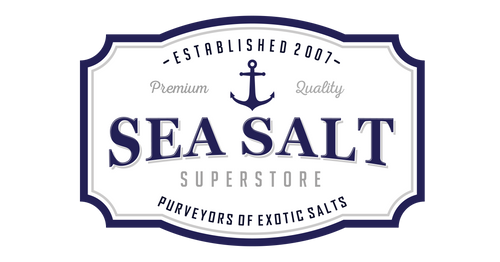When we think about the health effects of salt, we often focus on its impact on blood pressure and heart health. However, emerging research has raised concerns about the potential effects of excessive sodium intake on bone density and overall bone health. Bone density refers to the amount of minerals—primarily calcium—present in bones, and it is a critical factor in determining bone strength and fracture risk. Inadequate bone density is a hallmark of osteoporosis, a condition that leads to weakened bones. With osteoporosis affecting millions of people worldwide, particularly older adults, understanding the role diet plays in bone health is crucial. But is salt one of the dietary factors we should be concerned about?
How Salt Affects Bone Health
The connection between salt and bone density is primarily related to how sodium interacts with calcium in the body. Sodium is a key component of table salt, and when consumed in excess, it can lead to an increase in the excretion of calcium through urine. Here’s how the process works:
-
Increased Calcium Excretion: When the body takes in too much sodium, the kidneys work harder to filter out the excess salt. In the process, calcium is also excreted. Since calcium is a vital mineral for bone health and density, excessive sodium intake can lead to a reduction in the amount of calcium available to the bones, potentially weakening them over time.
-
Impact on Bone Density: Over time, a diet consistently high in salt may reduce the body's ability to retain calcium, which is crucial for bone strength. This calcium loss could contribute to a gradual decline in bone density, making bones more fragile and susceptible to fractures.
-
Increased Risk of Osteoporosis: Osteoporosis, a condition characterized by low bone density and brittle bones, is a common concern for older adults, particularly postmenopausal women. Since bone density is directly linked to the risk of osteoporosis, any factor—such as excessive sodium intake—that accelerates bone loss can increase the likelihood of developing this condition.
Research on Salt and Bone Density
Several studies have explored the link between sodium consumption and bone health. The results are somewhat mixed, but the general trend suggests a possible connection between high salt intake and reduced bone density:
-
Animal Studies: Research on animals, including rodents, has shown that high-sodium diets lead to increased calcium excretion and decreased bone mineral density. These studies support the theory that excess salt can contribute to bone loss.
-
Human Studies: In humans, studies have shown that people with high sodium intake tend to have lower calcium levels in their urine, which could point to an increased risk of calcium deficiency and weaker bones. One study published in the American Journal of Clinical Nutrition found that individuals who consumed high levels of sodium also had lower bone mineral density. However, other studies have not found a strong direct link between salt intake and osteoporosis, suggesting that additional factors, such as calcium intake or physical activity, may play a larger role in bone health.
-
Calcium Intake and the Salt-Bone Density Link: Interestingly, the effect of salt on bone density may depend on calcium intake. People who consume adequate amounts of calcium may experience less of an impact from high salt intake than those with low calcium consumption. This suggests that calcium may help counterbalance some of the negative effects of excess sodium on bones.
Factors Beyond Salt: What Else Affects Bone Health?
While salt intake is one factor that may impact bone density, bone health is influenced by several other dietary and lifestyle factors:
-
Calcium and Vitamin D: Calcium is the most important mineral for bone strength, and vitamin D helps the body absorb calcium. Ensuring adequate intake of both is essential for maintaining strong bones, especially as we age.
-
Physical Activity: Weight-bearing exercises, like walking, running, and resistance training, are crucial for maintaining and improving bone density. Regular exercise stimulates bone formation and can help prevent bone loss.
-
Other Nutrients: Magnesium, potassium, and vitamin K are also important for bone health. A balanced diet rich in these nutrients, along with adequate calcium and vitamin D, is vital for bone strength.
How Much Salt Is Too Much?
The key to managing the potential effects of salt on bone health is moderation. The American Heart Association recommends a daily limit of 2,300 mg of sodium for most adults—roughly equivalent to one teaspoon of salt. However, the average American consumes much more—around 3,400 mg per day—largely from processed foods, restaurant meals, and packaged snacks. Reducing processed food consumption and focusing on whole, minimally processed foods can help lower sodium intake and reduce the risk of excessive calcium loss.
If you're concerned about your bone health, focus on these strategies:
- Limit processed and salty foods, which are high in sodium.
- Ensure you're getting enough calcium (1,000-1,200 mg per day for most adults) and vitamin D (600-800 IU per day).
- Engage in weight-bearing physical activity to strengthen bones.
- Monitor your sodium intake, especially if you're prone to conditions that affect bone health, such as osteoporosis.
Conclusion
While salt is essential to our diet, excessive consumption of sodium can have negative effects on bone health. High salt intake may increase calcium excretion, potentially leading to reduced bone density over time. While more research is needed to fully understand the extent of the relationship, reducing sodium intake and ensuring adequate calcium and vitamin D intake can help support long-term bone health. Maintaining a balanced, nutrient-rich diet and an active lifestyle is the best strategy to protect your bones as you age.




